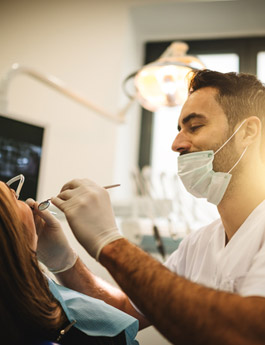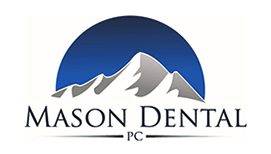Wisdom tooth extraction in Manchester
 Wisdom teeth extraction is a fairly common dental procedure. Most people’s wisdom teeth develop in their late teens and they need to be removed for the sake of oral health as well as the appearance of your smile. But just because a procedure is common doesn’t mean that it isn’t serious. In addition to his dentistry education at the University of Connecticut School of Dental Medicine, Dr. Mason also received special training in oral surgery and wisdom teeth extraction. Therefore, you can have complete confidence when you receive oral surgery in Manchester Center with Dr. Mason.
Wisdom teeth extraction is a fairly common dental procedure. Most people’s wisdom teeth develop in their late teens and they need to be removed for the sake of oral health as well as the appearance of your smile. But just because a procedure is common doesn’t mean that it isn’t serious. In addition to his dentistry education at the University of Connecticut School of Dental Medicine, Dr. Mason also received special training in oral surgery and wisdom teeth extraction. Therefore, you can have complete confidence when you receive oral surgery in Manchester Center with Dr. Mason.
Why Wisdom Tooth Extraction is Necessary
Most people’s wisdom teeth are simply too large for their mouths. Prehistoric man needed them in order to eat raw plants and tough meat. But through the ages, our eating patterns have changed and wisdom teeth are now obsolete.
Whether wisdom teeth have erupted or are impacted, you do yourself a favor by having them removed. Not only are they typically large, but they also tend to be positioned incorrectly. This causes them to put pressure on adjacent teeth, which can be of particular concern if you or your teenager has recently had orthodontic treatment. In addition, tooth decay and periodontal disease are commonly associated with wisdom teeth. Located at the very back of your mouth, these teeth are often difficult to keep clean.
Oral Surgery for Wisdom Teeth
Removing wisdom teeth typically takes about one hour. In addition to administering local anesthesia, Dr. Mason is certified and trained to provide three different types of sedation dentistry: nitrous oxide or laughing gas, oral conscious sedation and IV sedation. During the procedure, you won’t feel any discomfort.
Post-Op Instructions for Wisdom Tooth Extraction in Manchester Center
A smooth recovery is more likely if you follow Dr. Mason’s specific instructions. You can watch our post-operative instruction videos by clicking here.
Some discomfort post-surgery is normal. Facial swelling can also be expected and tends to peak three or four days after extraction. An ice pack can be used to reduce swelling, and moist heat may be helpful if your jaw aches. Be sure to stay on schedule with the medications Dr. Mason prescribes for you to take after surgery.
For the first few days of recovery, rest and relaxation are in order. Avoid heavy lifting or any other kind of strenuous activity. Stick to a diet of soft foods such as yogurt, pudding, soups, mashed potatoes, applesauce and the like. Staying hydrated is an important part of the healing process. Always drink directly from a glass. Don’t use a straw because the sucking action can dislodge blood clots.
You can begin brushing your teeth again a couple of days after surgery, but don’t brush over the blood clots. Follow Dr. Mason’s instructions to properly irrigate and remove food particles that can become trapped in the sockets. Finally, if you’re a smoker—and we hope you’re not—don’t smoke for at least 24 hours after oral surgery.
